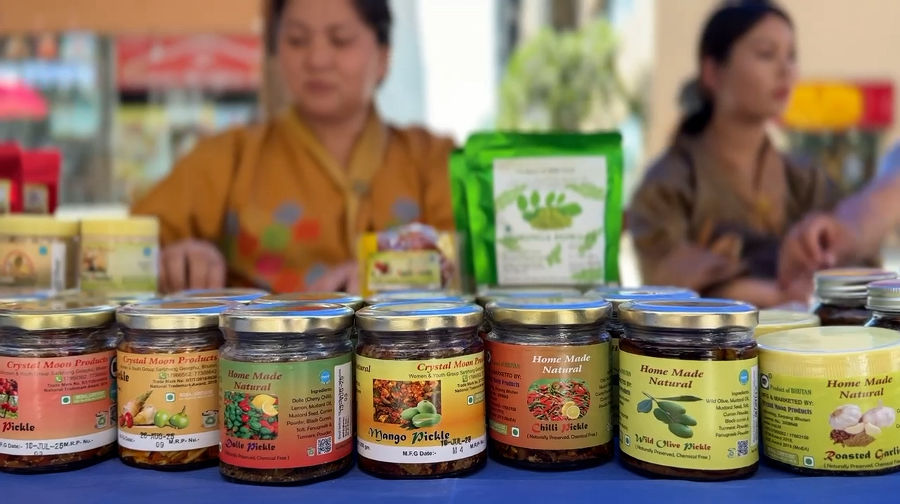 Bhutanese entrepreneurs are exploring new business opportunities for agro-products in India to ease market challenges at home. To tap into the growing demand for naturally grown goods, Bhutanese entrepreneurs are meeting potential buyers and showcasing their products at the Kachenjunga Tourism Festival in Siliguri, India. The three-day festival will end tomorrow.
Bhutanese entrepreneurs are exploring new business opportunities for agro-products in India to ease market challenges at home. To tap into the growing demand for naturally grown goods, Bhutanese entrepreneurs are meeting potential buyers and showcasing their products at the Kachenjunga Tourism Festival in Siliguri, India. The three-day festival will end tomorrow.
A wide range of Bhutanese agro-products, including herbal teas, pickles, and honey, are on display at the Kachenjunga Tourism Festival. As planned, these products are attracting the attention of Indian buyers and businesses.
Many visitors say Bhutan’s products stand out because they are natural, authentic and healthy.
“Bhutanese products are purely authentic and organic, and there is no doubt about it. Most of the products we have seen are produced by women, which is very good for the economy. The plants grown are world-class with all the necessary certifications. The packaging is also world-class, and these are what the world demands today,” said Pradeep Singhal, the chairman of the North Bengal Zonal Council, India.
The chairman of the Aggregator Network of Chhukha, Tshering Dorji said, “As we interact here, we find people in Darjeeling and Kalimpong share similar eating habits to us. Our organic products appeal to them. Even at our stalls, items such as honey, noodles and buckwheat flour are selling easily.”
A team of Bhutanese entrepreneurs, along with officials from the Department of Agricultural Marketing and Cooperatives, the Bhutan Chamber of Commerce and Industry, and the Bhutan Exporters Association, is promoting the products at the festival.
“We see huge market potential in Siliguri. It is only a four-hour drive from Phuentshogling, which makes transportation easier. Most importantly, people in nearby areas like Darjeeling, Sikkim and Kalimpong have similar tastes to the Bhutanese. The population here is double ours, and people are often surprised to see that Bhutan produces items such as tea and noodles,” said Sangay Thinley, the chief marketing officer of the Department of Agricultural Marketing and Cooperatives.
The convener of the Association for Conservation and Tourism in India, Raj Basu said, “It has been about two years since COVID that we started working with DAMC and Chhukha Dzongkhag to promote agro-tourism. We signed an MoU and organised farmers’ meetings. As a result, people in India have developed a strong interest in Bhutan.”
Officials say such interactions have already helped build business linkages in the past, and the current initiative is expected to further open doors for Bhutanese agro-products in the Indian market.
Besides showcasing their products, Bhutanese entrepreneurs are also taking part in business idea pitching, one-on-one meetings, and linkage sessions with entrepreneurs from Indian and Nepal.
Kinley Dem, Siliguri, India
Edited by Sangay Chezom







